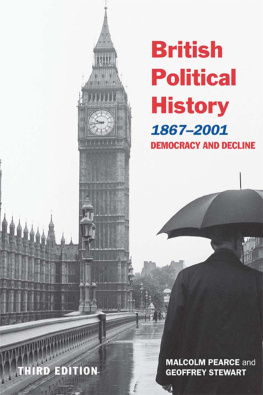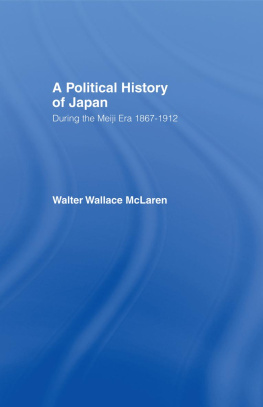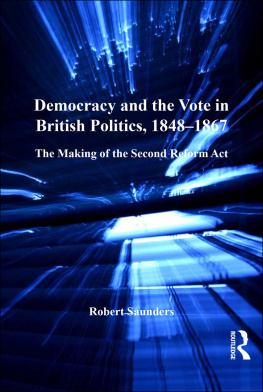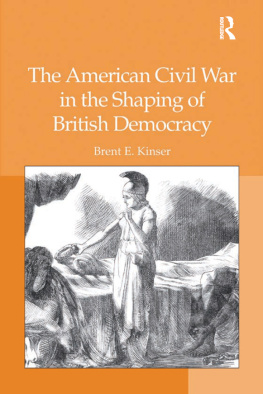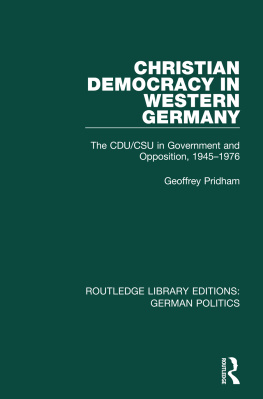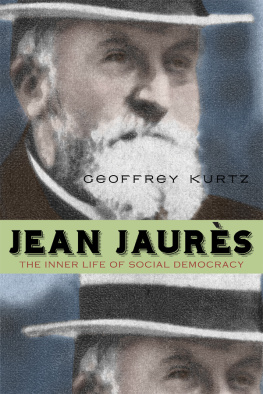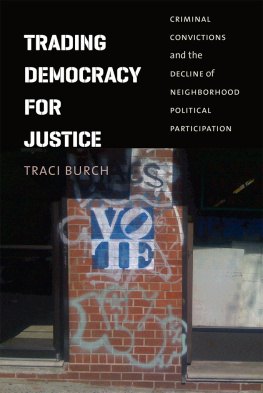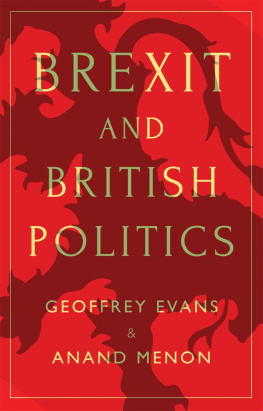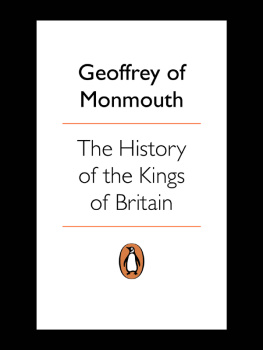British Political History 18672001
British Political History
18672001
Democracy and Decline
Third edition
Malcolm Pearce and Geoffrey Stewart
First published 1992
by Routledge
2 Park Square, Milton Park, Abingdon, Oxon, 0X14 4RN
Simultaneously published in the USA and Canada
by Routledge
711 Third Avenue, New York, NY 10017
Second edition published 1996
Third edition published 2002
Routledge is an imprint of the Taylor & Francis Group,
an informa business
Transferred to Digital Printing 2010
1992, 1996, 2002 Malcolm Pearce and Geoffrey Stewart
All rights reserved. No part of this book may be reprinted or reproduced or utilized in any form or by any electronic, mechanical, or other means, now known or hereafter invented, including photocopying and recording, or in any information storage or retrieval system, without permission in writing from the publishers.
British Library Cataloguing in Publication Data
A catalogue record for this book is available from the British Library
Library of Congress Cataloging in Publication Data
A catalog record for this book has been requested
ISBN 10: 0-415-26869-9 (hbk)
ISBN 10: 0-415-26870-2 (pbk)
ISBN 13: 978-0-415-26869-1 (hbk)
ISBN 13: 978-0-415-26870-7 (pbk)
Publishers Note
The publisher has gone to great lengths to ensure the quality of this reprint
but points out that some imperfections in the original may be apparent.
FOR DIANA
(M.L.P.)
TO ALL MY FAMILY
AND THE MEMORY
OF THE THREE Bs
(G.S.)
Contents
Photograph of Margaret Thatcher on a video screen published on 15 October 1988 in The Daily Telegraph.
The Daily Telegraph.
This is clearly not a work of original scholarship but the offering of two practising and busy A-level teachers. It is intended to present, in a form as simple as is possible with minimal distortion, a complex mass of events upon which students will then be encouraged to form their own opinions and judgements. The text is complemented by relevant, and we hope enlightening, visual sources and an arbitrary selection of some of the primary written sources that historians use in constructing their narratives and analyses. In a work which attempts to cover over a hundred and twenty years of history it is inevitable that certain events have had to be omitted which some scholars and teachers would consider vital. The division of this period into fourteen chapters must also be thought by some to be idiosyncratic. The choices were made on the grounds of clarity of theme for the reader as well as association with possible examination topics. The book therefore follows the pattern that many teachers might choose to adopt in their lessons.
At the end of each chapter are two important additional sections. The first is headed Controversy. These controversies are not intended to be definitive historiographies of the topic covered but introductions to historiography, making the student aware of one area of historical debate relevant to individual chapters. These controversies vary enormously in range and emphasis from the extensive one on Victorian imperialism at the end of often than not has been written for the general reader and is either simply constructed or in a narrative style that makes it easily accessible to most students. The designation 3 suggests a major read but not one beyond a good A-level student who is prepared to put in extra effort. Those texts denoted with 4 are either works of high scholarship or very long indeed which could be off-putting to many A-level students. They can, however, still be used selectively, with careful guidance. Any rating system is by its nature subjective, after all one mans difficult read can be another womans literary jaunt and vice versa, but the grading in terms of length and difficulty will, we hope, be generally useful.
Finally, the sources for coursework sections at the end of chapters again can be no more than simple pointers, suggesting a few lines of fruitful enquiry. All students should, of course, familiarize themselves with their local lending and reference libraries in order to locate the information they need or identify suitable alternative sources. There is access to virtually every book in print via the inter-library loan service (a small charge may be made) although students must be aware of the need to order certain texts, in some cases months in advance, when using this overstretched resource.
Geoffrey Stewart and
Malcolm Pearce
York Sixth Form College
The authors and publisher gratefully acknowledge permission to reproduce the illustrations. Copyright holders are credited in the list of illustrations on p. xii.
The extracts from manifestos in are reprinted by permission of the Labour Party and the Conservative Party.
The authors are grateful to Andrew Hicks of York Sixth Form College, who drew the maps.
The toilet roll lay four years in the future. To the 1870s also belonged the appearance of chewing-gum, jeans and milk chocolate. The men and women of 1867 were without all these everyday articles which ease our path through life in the twentieth century. They would have to wait 19 years for Coca-Cola, 26 for breakfast cereals and 30 years for arguably the greatest of all medicines: the humble aspirin. Milk bottles, bras and soap powder would not offer their welcome presence until the early years of the present century. It was a world, in various important aspects, very different from our own.
What events distinguished 1867, the thirtieth year of Queen Victorias reign, from those that followed it and preceded it? On the eastern borders of Europe, Count Leo Tolstoy was writing War and Peace. In far away Japan perhaps the most momentous events of the year were taking place as Emperor Meiji revoked the powers of the shogunate and launched Japan on its revolutionary course of modernization. In central Europe the North German Confederation came into existence, a major step towards the eventual unification of Germany under Prussian, and more particularly Bismarcks, leadership. In Paris the emperor Napoleon III enjoyed the Paris exhibition which drew vast crowds, and Verdis new opera Don Carlos had its opening. Manet, Degas and other Impressionist painters were rocking the art establishment of France -and establishing their reputations.
In Britain the Second Reform Act became law in August, giving the vote to one in three males. Women were, of course, excluded. However, for the first time the working classes formed a majority of the electorate and for many Conservatives the nightmare concept of democracy had apparently become a reality. The new iron-clad HMS Hercules was launched, emphasizing Britains technological pre-eminence and the fact that Britannia really did rule the waves. Darker deeds marked the ending of the year when Fenians in their fight for an independent Ireland blew up the outer wall of Londons Clerkenwell prison. Over-generous with their quantities of explosives they killed twelve people, injured 120, and demolished several houses. The Fenians had used gun-powder but the year also saw the invention of dynamite. From now on bigger explosions would be possible.


